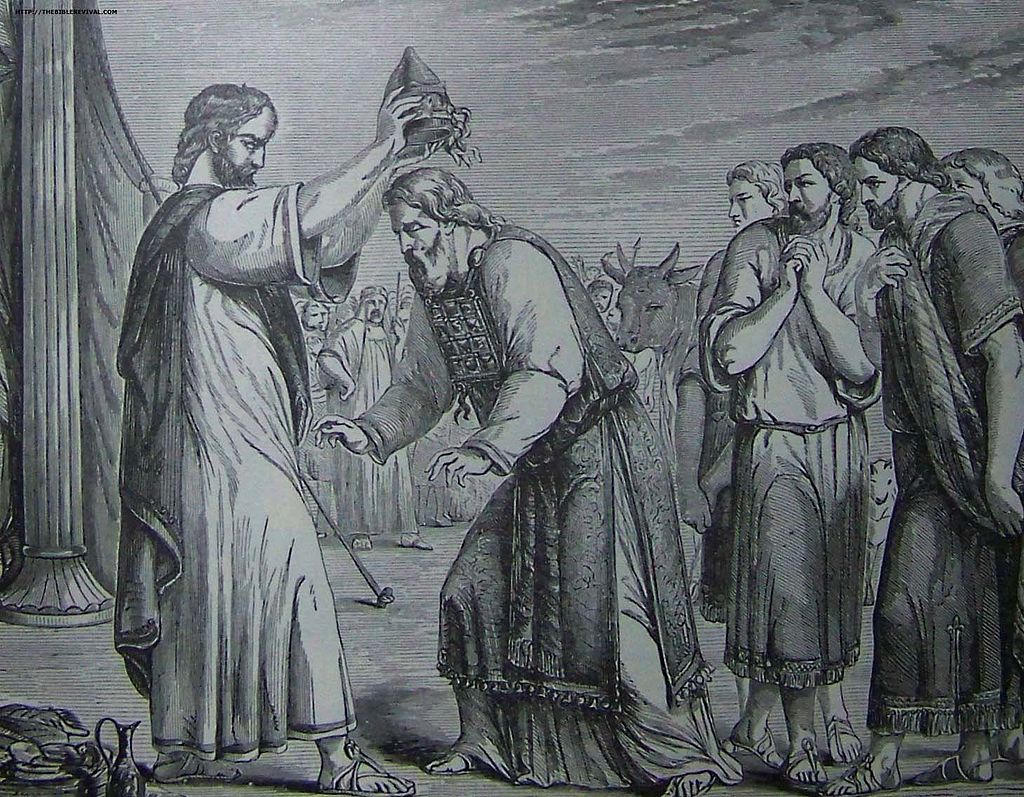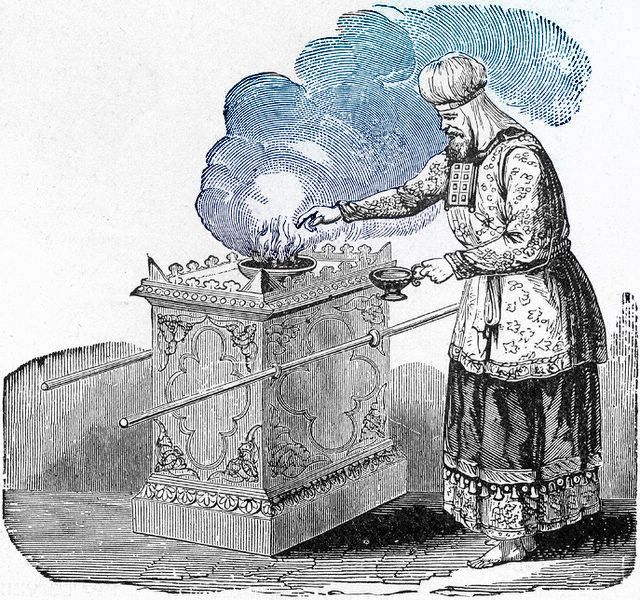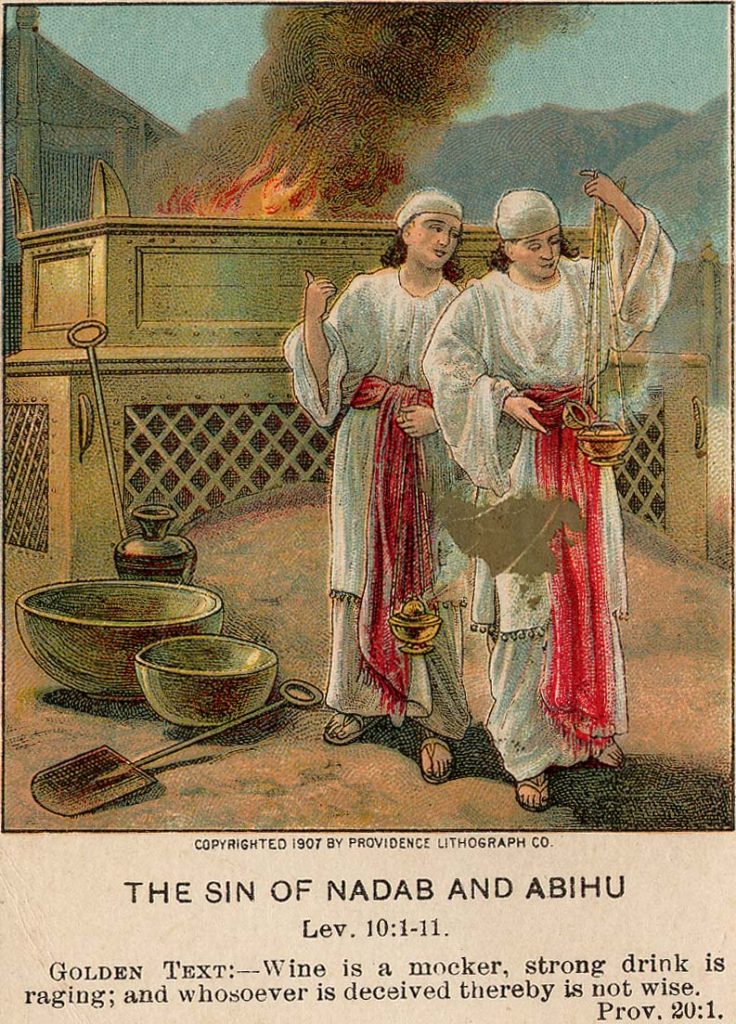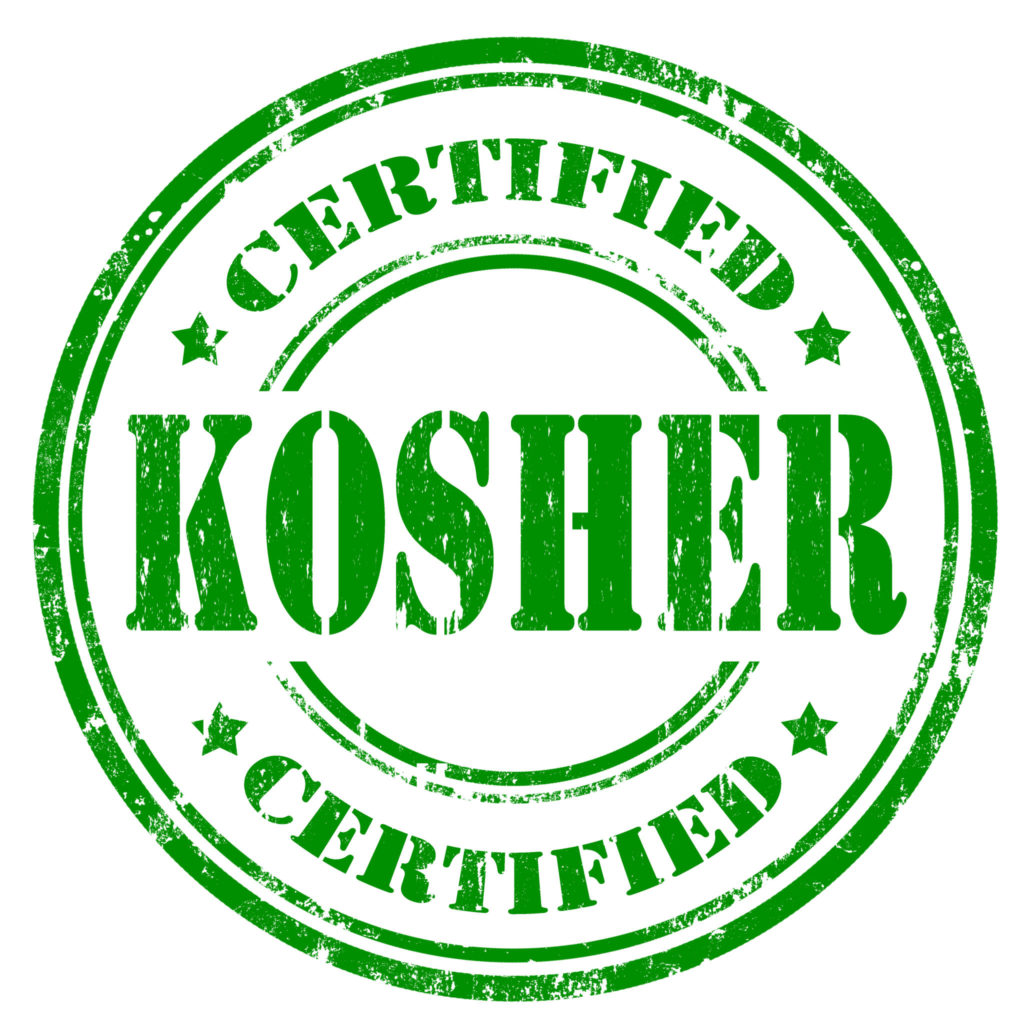Dedication, sacrifice, death and holiness

Shmini in a nutshell
When we open the door, and start reading parashat Shmini, Hebrew for “eighth,” we learn about the final dedication day of the Tabernacle, the tragic deaths of Ahron’s two elder sons, Nadav and Avihu, and the dietary laws of kashrut. The parashah constitutes Leviticus 9:1–11:47.

Following the seven days of their inauguration, on the eighth day, Ahron and his sons begin the Avodah, officiating as kohanim (priests); Mosheh told Ahron to gather specific animal and grain offerings and bring them before G-d. Ahron sacrificed the animals, lifts his hands toward the people and bless them. Ahron and Mosheh go inside the Tent of Appointed Meeting, come out again, blessing the people, and the glory of G-d revealed itself to all the people in a form of a G-dly fire descending from heaven and consuming the offerings on the altar, a sign and a proof that Bnai Israel were forgiven for the sin of the Golden Calf and that the Shchinah, the divine presence, rested in the Mishkan they had built. All the people saw it, and were joyous, as they longed for this moment for many years.

Nadav and Avihu

Our Sages tell us that twelve times fire fell from heaven. Six fires showed that G-d was pleased, and six were fires of punishments. Ahron’s sons, Nadav and Avihu, wanting to get closer to G-d, offered an “alien fire before G‑d, which He commanded them not”, and die before G‑d for offering this “extra” korban ketoret. Mosheh: “This is what G-d said, ‘I will be sanctified through those who are nearest Me, thus I will be honored before the entire peoples.” Ahron is silent facing his tragedy, “vayidom Ahron”.

Kosher
In our parashah, G‑d commands the kosher laws, the distinction between permissible and forbidden animal species, for consumption. Land animals may be eaten only if they have split hooves and also chew their cud; fish must have fins and scales; a list of non-kosher birds is given, and a list of kosher insects (four types of locusts). Why the Torah command us to eat only Kosher food? G-d put the people on a special diet. If they follow the kosher diet their souls, their neshamah will stay holy.
The Snake
The Torah lists eight creeping animals whose dead bodies, if touched by Jews, cause him to become Tame. The snake, that is considered an evil creature, persuading Chavah to sin, is not one of those eight. Why? In parashat Bereishit G-d punished the snake, it will always be the enemy of man. If a dead snake would cause a Jew to become tame, no Jew would dare to step on it in self-defense, being afraid of becoming tame (Rabbeinu Bechyey).

Leviticus 11:43-45
“You shall not make yourselves impure by eating these things. For I the Lord am your G-d: you shall sanctify yourselves and be holy, for I am holy. For I, the Lord G-d, who brought you up from the land of Egypt to be your G-d, you shall be holy for I am holy.”
×ַל־תְּשַ×קְּצוּ֙ ×Ö¶×ªÖ¾× Ö·×¤Ö°×©Ö¹×Ö£×ªÖµ×™×›Ö¶Ö”× ×‘Ö°Ö¼×›Ö¸×œÖ¾×”Ö·×©Ö¶Ö¼×֖רֶץ הַשֹּ×רֵ֑ץ ×•Ö°×œÖ¹Ö¤× ×ªÖ´Ö½×˜Ö·Ö¼×žÖ°Ö¼×וּ֙ ×‘Ö¸Ö¼×”Ö¶Ö”× ×•Ö°× Ö´×˜Ö°×žÖµ×ªÖ¶Ö–× ×‘Ö¸Ö¼Ö½×׃
×›Ö´Ö¼Ö£×™ ×Ö²× Ö´Ö£×™ יְהוָה֮ ×ֱלֹֽהֵיכֶ×Ö’ וְהִתְקַדִּשְ×תֶּ×Ö™ ×•Ö´×”Ö°×™Ö´×™×ªÖ¶Ö£× ×§Ö°×“Ö¹×©Ö´×Ö”×™× ×›Ö´Ö¼Ö¥×™ ×§Ö¸×“Ö–×•Ö¹×©× ×Ö¸Ö‘× Ö´×™ ×•Ö°×œÖ¹Ö¤× ×ªÖ°×˜Ö·×žÖ°Ö¼×וּ֙ ×Ö¶×ªÖ¾× Ö·×¤Ö°×©Ö¹×Ö£×ªÖµ×™×›Ö¶Ö”× ×‘Ö°Ö¼×›Ö¸×œÖ¾×”Ö·×©Ö¶Ö¼×֖רֶץ הָרֹמֵ֥שׂ עַל־הָ×ָֽרֶץ׃
×›Ö´Ö¼Ö£×™ ×€ ×Ö²× Ö´Ö£×™ יְהוָ֗ה הַֽמַּעֲלֶ֤ה ×ֶתְכֶ×Ö™ מֵ×ֶ֣רֶץ ×žÖ´×¦Ö°×¨Ö·Ö”×™Ö´× ×œÖ´×”Ö°×™Ö¹Ö¥×ª ×œÖ¸×›Ö¶Ö–× ×œÖµ××œÖ¹×”Ö´Ö‘×™× ×•Ö´×”Ö°×™Ö´×™×ªÖ¶Ö£× ×§Ö°×“Ö¹×©Ö´×Ö”×™× ×›Ö´Ö¼Ö¥×™ ×§Ö¸×“Ö–×•Ö¹×©× ×Ö¸Ö½× Ö´×™×ƒ
Also in Shemini are some of the laws of ritual purity, differentiating between the impure and the pure; including a mikveh and the wellspring ritual.




Comments